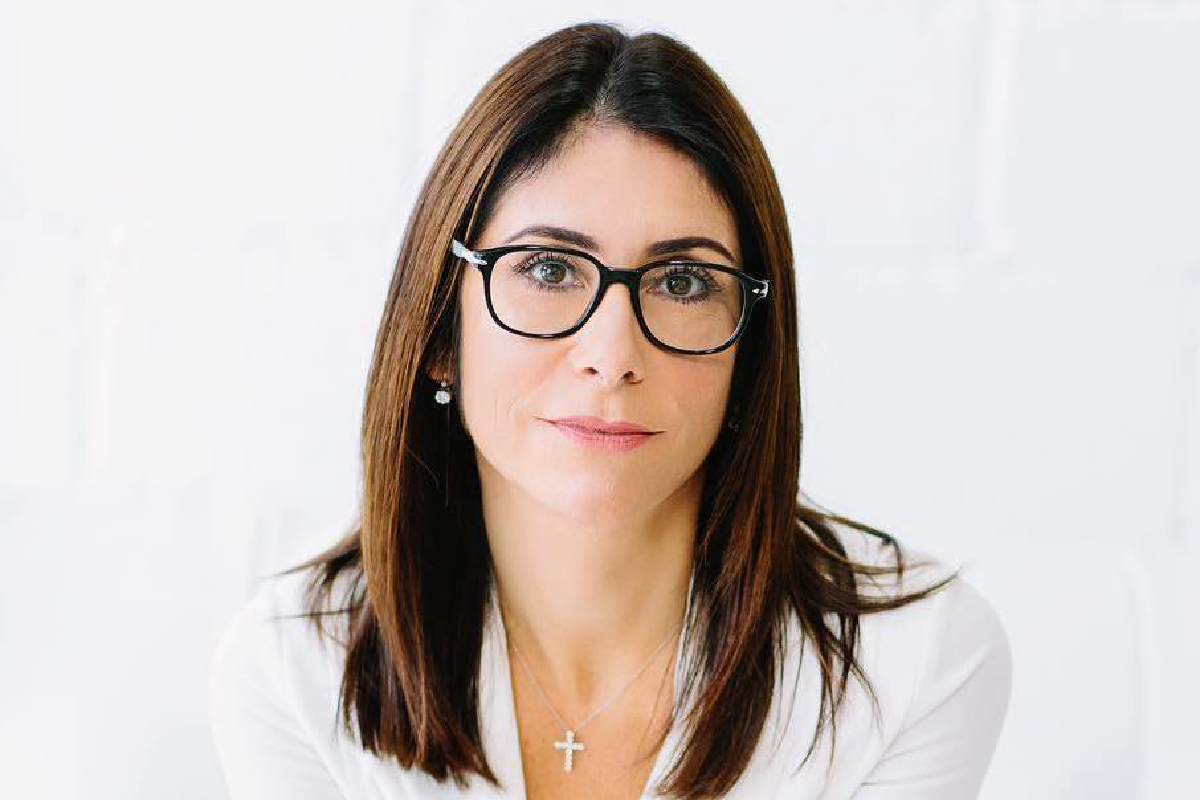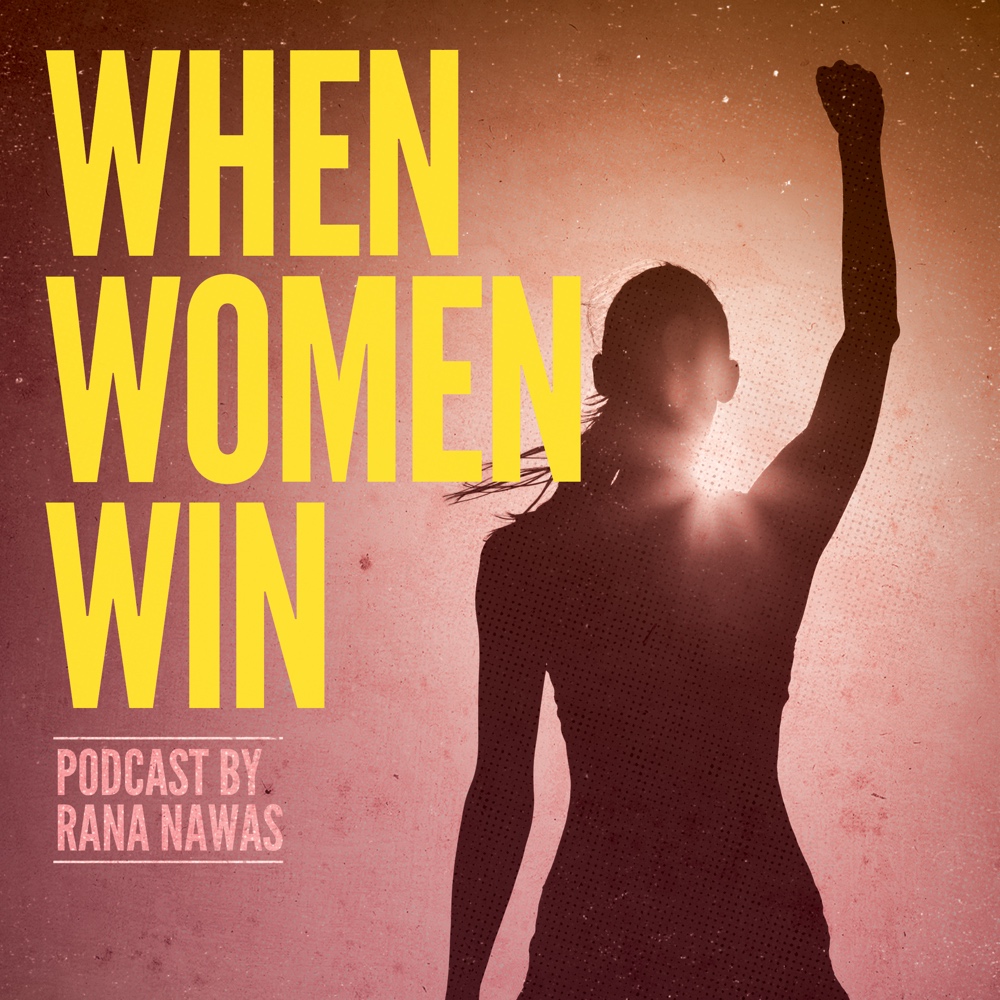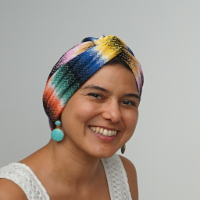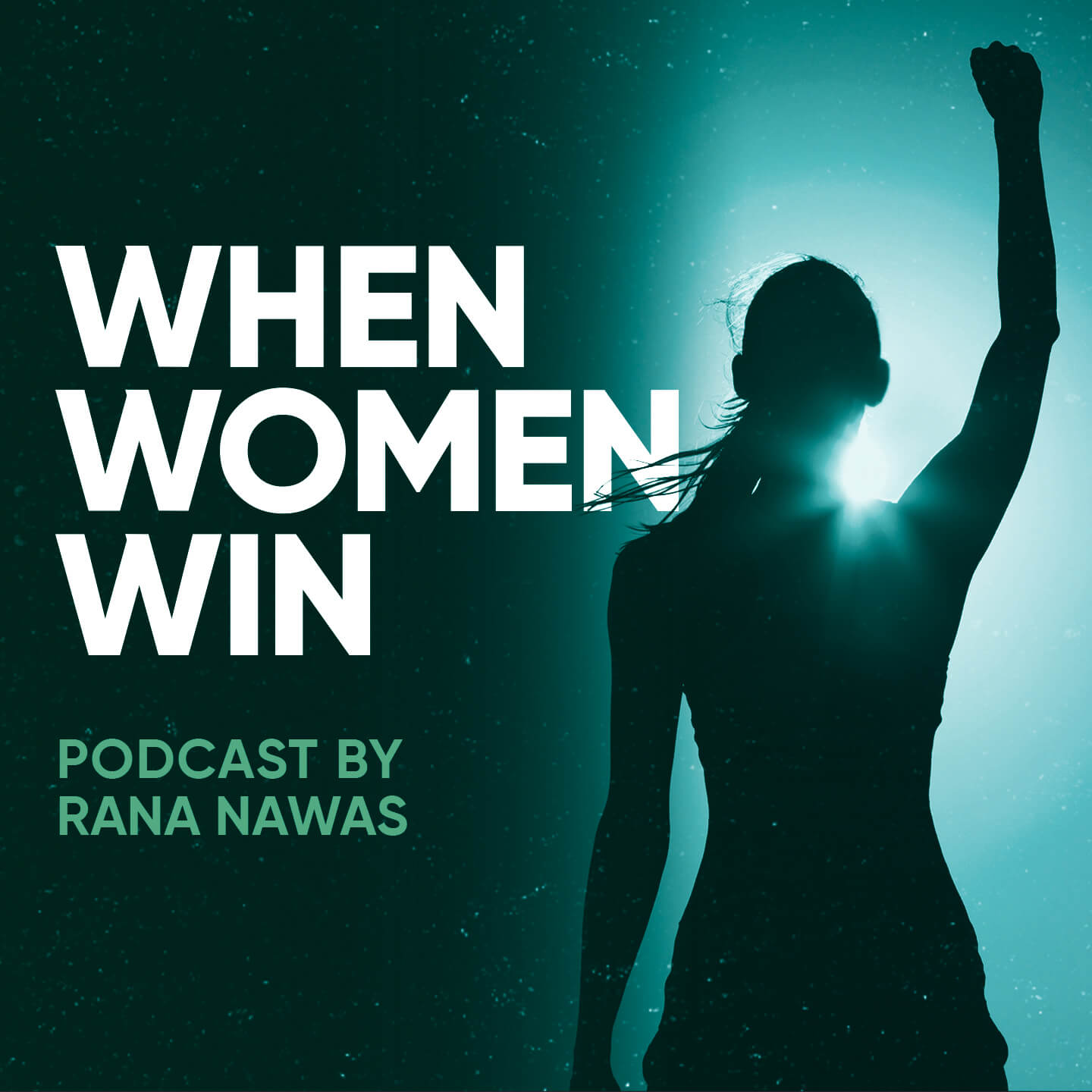
Have you ever thought about setting up a business with your husband? Seeing them all day at work, and every evening at home… What about doing that for 15 years?
Bosslady Sophie Le Ray has done just that. Sophie is an entrepreneur and an experienced business facilitator. In 2002 she co-founded Naseba, a business facilitation company specializing in emerging markets. Sophie is the founder of the Global WIL Economic Forum (www.wilforum.com) a platform that promotes women’s economic empowerment. She also co-authored a book called “Game Changers: How Women in The Arab World are Changing the Rules and Shaping the Future”.
During our chat, we explored her path as an entrepreneur and discussed how to mix business with marriage. I learned more about the Women In Leadership Forum, its background and intention – and why she is taking it to Saudi Arabia in December. Sophie also shared her plans for the future – once your business is a success and is running itself, what do you do?
Read the Transcript
Rana Nawas: Hello Ladies and gentlemen, my guest on today’s show is an extraordinary lady, not just because she’s been married to the same guy for 15 years, but because he has also been her business partner for that long. Sophie Le Ray is an entrepreneur, an author, and an experienced business facilitator. In 2002, she co-founded naseba, a business facilitation company specializing in emerging markets. She’s the founder and spokesperson of the Global Women in Leadership Forum, a platform that promotes women’s economic empowerment and celebrates diversity and inclusion worldwide. She’s also the author of a book Game Changers, how women in the Arab world are changing the rules and shaping the future. So let’s get into it.
Rana Nawas: Hello Sophie. Thank you so much for joining us on today’s show.
Sophie Le Ray: Thank you for inviting me.
Rana Nawas: So Sophie is not only a friend, but also an extremely patient lady. She has been with the same guy for 17 years and Scott has also been her business partner for the last 15 years. So we’re definitely going to explore what it’s like being married to your business partner. But first, let’s talk more generally entrepreneur, author, founder of women in leadership. Let’s look at each one of these and let’s start with why you set up your own company. I mean, what were the circumstances in your life back then?
Sophie Le Ray: I wanted to be the driver of my own car, the sailor of my own ship. I didn’t necessarily come to entrepreneurship first. My life was planned about being an academic. I wanted to be an archaeologist. I studied history. I went all the way to my first year of PhD – and I realized that it was actually not for me. I didn’t care very much for the politics. I realized that I was more in love with my freedom than anything else. So I needed to find a way to mix my love for research and for traveling and for discovering and for curiosity, but as well to be in charge of my own life.
Rana Nawas: Great. So Scott has been your partner for the last 15 years since you cofounded naseba. So how does that, how do you guys make that work?
Sophie Le Ray: It’s a dream come true. No. Well, how do we make it work? We went through many, many phases, were very complimentary. We have different skill sets. We try the best we can, not to step on each others’ toes when we do. So we get it out there, we clear the air, we scream at each other. Usually that’s how it works. The cleaning the air and it’s not really nice and pretty most of the time. But both of us can deal with it. So yeah, there’s ups and downs. It’s not easy, it’s not something I would recommend to couples for sure. For us it, it works.
Rana Nawas: Okay. Well, I mean 15 years is a long time to be working with your, with your husband. Can you perhaps talk about the business challenges that you guys face in starting naseba back in 2002?
Sophie Le Ray: 15 years is a long time for any partnership. Um, it’s usually enough time to know if it was the right thing to do or not. I will just add one thing to the fact that it works. It works because we have the same vision as a couple and as business partners we go towards the same goal. We might go in a different approach, but we go towards the same goal. Um, business challenges. Well, we’ve had our share of that. I guess the biggest challenges we had to face was dealing with growth. We grew very fast. It sounds a bit, it sounds a bit not very thankful for the growth, but we grew very, very fast. In three years we had grown by thousands of percent, four years into the inception of the company. We took it public, we brought some money in and um, it was almost too soon.
Sophie Le Ray: It was almost too soon. It was for sure too soon. It was too soon for our maturity as entrepreneurs and too soon in the company. So, we almost exploded because of that growth, of not being able to deal with the growth the way we would be able to do so now. That was the biggest challenge. But at the same time, I’m glad it happened that soon in the, in the process, because we learned so much out of it that now we have built capability and mental strength and resilience to accompany growth. Another business challenge is we deal with people differently. He is very intuitive. I am too. But the difference is that he is very clinical about it. It’s black or white. I give more time and chances and options and I sometimes don’t listen so much to my gut feeling, which I know is [wrong] I’ve learned the hard way. It’s not something I should do. I should listen to it more.
Rana Nawas: I think we all need to listen more to our gut. Perhaps you can talk about one personal challenge that you’ve faced as an entrepreneur and running your own company. I mean, I guess we can call you an entrepreneur anymore. It’s been 15 years. You’re a full fledged business owner, perhaps one personal challenge in making all this happen.
Sophie Le Ray: Um, same thing as a couple. Not bringing shop into the home. So bringing shop to home, bringing shop at home, we try not to. It’s extremely difficult. It’s easier said than done, especially frustration, not bringing professional frustration into our couple and into our family. We’ve been half successful that we try from time to time. We said, okay, we don’t talk shop anymore so we can last about an hour and then it’s, it’s difficult, but we’re getting better and better at it. Uh, so that’s, that’s a personal challenge for sure. Um, and then finding personal space space. Still as a couple we are 24/7 together. So about a few years ago we found a balance in that. So he has his um, his uh, athletic challenges. I have my own time and we try to keep these moments completely for ourselves.
Rana Nawas: You moved to the Middle East over 10 years ago. Why, what brought you here?
Sophie Le Ray: Business again. It really sounds like I’m all business, but um, we, uh, we built the company with the idea of bringing Western organizations into emerging markets and about a year into the business we were in Monaco and one of our clients was a big incoming travel agent here in Dubai. And he said, you know, you guys, you guys have to come to Dubai because it will fit perfectly, your motto, your personality, you know, successes with choice, making things happen and stuff. And, and that was 2004 when Dubai was the wild, wild west. Scott flew to Dubai a couple of weeks after that discussion and he called me and told me, “you have to come here.” And I said, yeah, I will. “No, you have to come here now. You have to see it now.” So I actually jumped on a plane and three weeks later we had an office because we, we saw the opportunity.
Sophie Le Ray: It was just incredible. So we did back and forth for a while. Uh, and then we grew into India. We grew into Asia and it made sense to actually bring all the family and the headquarters to Dubai as opposed to run the business from the south of France.
Rana Nawas: Sophie, what exactly does naseba do?
Sophie Le Ray: A good question. We facilitate business opportunities for organization in growth markets. So we bring companies to new markets, whether to help them sourcing joint venture partners to find new clients, uh, to, uh, help with the leadership training of their workforce or to raise capital.
Rana Nawas: Okay. Phew. Finally. I understand. Alright. So you’re an author as well. I don’t know how you find the time, but can you tell us a bit about your book Game Changers?
Sophie Le Ray: Well, an author is a big word, I co-authored a book. On a topic that is dear to me recently actually, dear to me. And I will explain to you why. I very recently came out of the closet and discovered that I was a feminist. Uh, it was probably in the few first years of, of WIL that I realized, and it’s actually through discussion with Scott. I was saying something and he said, you know, you sound like a feminist. He didn’t say this in a very nice way, actually. I think now he regrets it. And I said, you know what? You’re right. I do sound like a feminist because I am one and you’re going to have to deal with it. He, he liked it.
Sophie Le Ray: And this realization, I guess I was like a lot of women, especially women working in a man’s world. I got on with things. I was always one of the boys. I never really thought that there was an issue of a diversity, but I was an entrepreneur. I didn’t live it. I didn’t stay in the corporate world long enough to realize it. So all this made me realize I’m a feminist and as a feminist I’m going to try to break that stereotype that I had even in my head of what a feminist is supposed to look like. Sound like, smell, like talk like. Right. That was one. The second stereotype we really wanted to get rid of is this, this whole thing about the subdued Arab woman. Living in the Middle East for so many years, I got really tired of people in the West asking me the same questions if I put my veil, if I can do business, if I can, you know, all the stereotypes. Um, and I had encountered so many amazing women with an Arab perspective on feminism and on femininity and on diversity. It was not the perspective I had when I was coming from the West. I wanted to, um, to give an opportunity to, to share that. And then my co-authors had this very academic discipline vision of statistics and research and macro. So we decided to combine that. So I would, I would talk about the journey of some women and men, game changers in this region, and they would look at the, the facts and figures, the nitty gritty detail of what it means to be, to put in place diversity programs in, in the workplace.
Rana Nawas: Yeah. You know, I get that from a lot of entrepreneurs that there isn’t an issue of diversity. And it’s so different for women in the corporate world. I mean, I’ve been 17 years in the corporate world and you come up against this stuff every day.
Sophie Le Ray: I can add something on that. I was in the corporate world too for such a short period of time that I never got to after middle management, but I realized that when I grew and I saw my friends around not necessarily growing or when we host conferences, C-level conferences and where are the women, you realize that they’re all stuck between middle management and middle management and it doesn’t make sense that there are so many talented women, hardworking women that don’t get to the, to the other steps. So that’s when I realized that, but it’s, it’s actually growing up that I realized that.
Rana Nawas: I think that’s the same for women in the corporate world. I mean, when you start out, you don’t feel it necessarily, but it gets harder and harder as the pyramid narrows. And that’s what all the C-level women I talk to say.
Rana Nawas: I’m glad you talked about feminism, you know, because there really is this negative connotation of the word. Whereas the whole, I mean from Ellevate network to Justin Trudeau, to Barack Obama, everyone’s trying to dispel this and say every man, woman and child on the planet needs to be a feminist. And just for the listeners’ benefit, I mean, how would you define feminism? I’d like to see if it’s the same definition I have.
Sophie Le Ray: Well, it’s a human right. It’s just a simple fact of offering equal, equal chances, equal opportunities to everybody. I shave my armpits. I love men. I love women as well. I don’t want to, to fight for it necessarily, but if I have to fight for equal opportunities for my daughters, I will do it. And my husband feels the exact same way. So it’s interesting because a few years back he was asking me, are you a feminist in a little bit, you know, he didn’t feel very comfortable with it, but now he is, he’s the first one to say, I am a feminist. I want the same opportunities for my daughter or for my, my team members. Uh, and it has nothing to do with their gender, it has to do with meritocracy
Rana Nawas: and equal pay, equal opportunity and equal pay because that’s another big one in the corporate world that gets missed. That being a feminist means that we want equal opportunity and equal pay for equal work. It’s not about favoritism.
Sophie Le Ray: Yep.
Sophie Le Ray: Well, you touched on women in leadership, so let’s talk about this upcoming Women in Leadership Forum and I’m really excited about the next edition. It’s happening in Dubai, October 25th and 26th. This is the 19th edition. So I think you did the first one in 2008 and back then it certainly wasn’t fashionable to have a forum about women in leadership. So can you tell us a little bit about what motivated you to start this initiative and how it’s grown and changed over the last few?
Sophie Le Ray: It started as the women in leadership forum and it’s now the global economy forum and it says a lot about its evolution. I’ll explain that. Back in 2008, we wanted to give a platform for women to share and to do business together because naseba is in the business facilitation arena and we noticed that most of our events were not very well attended by senior women or when it was attended, uh, they were on the side and they had a harder time to, uh, to network with the male presence. Uh, so we started like that. And we started as well as a kind of a, a way to break the neck of the misconception of Arab women as well. So there was this two-folded objective behind it. It was a gentle women’s club for women in the region. Um, but very, very, very quickly we realized that if we’re not evolving, it’s going to become an echo chamber. So it’s just going to be a bunch of women complaining about situations and it’s not going to help moving forward or moving the needle. And that’s why WIL became WIL economic forum.
Sophie Le Ray: So it became more of a platform to to champion diversity and inclusion, to offer best practice case studies, you know, concrete ways of sorting out this issue, which is dumbfounding in 2017 that we still don’t have equal pay or equal opportunities per by gender. And it was as well seen as a way to, I don’t like the word lobby, but it is actually some form of a lobby. It’s a voice to be heard from organization and from individuals that says, okay, men and women, we are here to champion diversity and if we want to really build a knowledge based economy then let’s do it with all the talent pool available. So that’s what WIL is all about. And that’s how it has grown into a platform now of about 400, 500 men and women. And I repeat because it’s absolutely crucial to involve men in the conversation. Being a feminist. Exactly like you said, is not an attribute of women. It’s just a human attribute. Anybody that has some form of humanism should consider that diversity is, is, is a basic principle of humanity.
Rana Nawas: I love that. So I understand you’re doing a WIL forum in Saudi Arabia in December. Why now? Or have you done this before?
Sophie Le Ray: Yes, we have hosted several WIL in the past, uh, and here as well it has evolved tremendously. Um, it’s now actually a forum that is mixed gender, so it’s a, it’s a, what I was telling you about involving men into the equation is now a reality in Saudi. Uh, and that makes me extremely happy and proud and it, it shows how much the country has evolved as well. I’ve been traveling back and forth to the kingdom now for 10 years. So I’ve, I’ve seen it firsthand and it’s really been palpable in the past few years. Um, I think this year we’ve hosted WIL in Jeddah, in Dammam, in Riyadh. It has been a gentle women’s club. It has been an HR conference. It has been many things, but now you can see the momentum is picking up and the, uh, the interests, the genuine interest both from the public and the private sector, uh, goes to show how much is going on in, in the kingdom. I think the, the interesting part of it is that it has, it’s the proof of a paradigm shift where the kingdom is ready to move towards a knowledge-based economy.
Sophie Le Ray: It’s the right time in, in Saudi history because the transformation comes from the top. And for economic reasons. It’s no longer just a cultural aspect, it’s no longer the right thing to do or not the right thing to do. It’s the smartest thing to do if you building a country that has strong, sustainable economic foundations, you need to involve everybody. And women’s economic empowerment is part of that. Uh, it is as simple, clear-cut as that. Um, so women will contribute to the economic development of the kingdom. And I am extremely hopeful for the years to come. I believe we’re going to see a change like, like crazy change.
Rana Nawas: So Sophie, you’ve built naseba up and your, you’ve made it a massive success and well done and congratulations. But what is next for you now on a personal level? What are you working on?
Sophie Le Ray: Do you mean I’m old? Well, uh, I’m working on taking a more elevated approach to the business. Uh, I have, uh, luckily I have a great team and a, it’s time for them to, to take the reins of, of the business and for me to, uh, to be more strategic, um, and, and to, to look at the future of the company, but not to be so involved in the nitty gritty of the day to day. Uh, it’s important for them. It’s important for me, uh, for both of them, but, but, but it’s part of growing a business as well. I realized that if I don’t detach from the day to day, I’ll never let it go and uh, nobody can grow under, under me as well. So it’s, it’s not, it’s not what I want to be seen as as a leader. So what am I going to do with my time?
Sophie Le Ray: Because I’m going to have lots of time, uh, I tried to since this year, last year, but this year very much I apply to allocate a lot of my time to personal growth and then to allocate my time as well to serve in organizations that I believe in. So the two aspects that I’m very, um, keen on supporting is youth and education – goes hand in hand. So that’s what I do. And uh, I decided this year as well to implicate naseba in that process I realized that it was not just about me and my growth or my service, but that I could use the whatever influence I gain in my arena, in my sphere, um, and in my professional career and in my company to do good. Uh, so and I, and, and I realized as well while I was talking to a lot of the team members that they wanted to be part of that as well. It gives them something to actually look to and when we have a huge network, we’re in the network business. So why don’t we use that network to do good as well. So that’s what we do.
Sophie Le Ray: Amazing. Well, best of luck to you for that. Sophie, thank you so much for being here with us today. It’s been a real pleasure and very enjoyable and perhaps you’ll just like to share with our listeners where they can find you and where they can learn more about the Dubai Women in Leadership forum.
Sophie Le Ray: www.naseba.com or www.wilforum.com
Rana Nawas: Thanks. And that’s being held October 25 and 26 in Dubai. Well that’s a wrap. Thank you again, Sophie.
Sophie Le Ray: Thank you.
Rana Nawas: I hope you enjoyed today’s episode. You can check out, show notes and more episodes at whenwomenwinpodcast.com or search When Women Win on iTunes, spotify, or wherever you get your podcasts. I’d also love to hear your feedback and ideas for who I should bring on the show. You can find me on instagram @rananawas. Thanks and have a great day.


